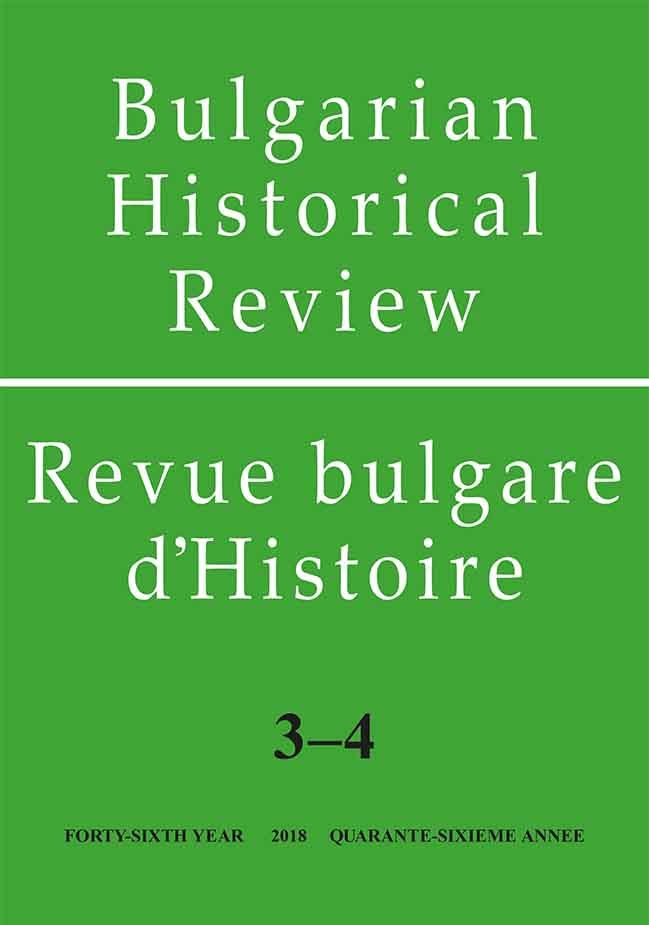Past Continuous: The Second World War and the Changes of the Narratives About It (the Bulgarian Example)
Past Continuous: The Second World War and the Changes of the Narratives About It (the Bulgarian Example)
Author(s): Petya B. Dimitrova, Nikolay PoppetrovSubject(s): History, Diplomatic history, Political history, Recent History (1900 till today), Special Historiographies:, WW II and following years (1940 - 1949), Historical revisionism
Published by: Институт за исторически изследвания - Българска академия на науките
Keywords: Second World War; Bulgarian historiography; new interpretations of the past;
Summary/Abstract: The article follows the change in the narrative about World War II in Bulgarian historiography after the changes in Eastern Europe from the late 1980s to the early 1990s. Without denying the great importance of the collapse of communism and the world socialist system that led to the disappearance of the leading role of the ideological postulates of Marxism-Leninism and of Soviet historical science in the study of the historical process in the Eastern Bloc countries, the authors express the view that these changes should be seen in the context of the processes of re-evaluation of the past, not only in the eastern but also in the western regions of Europe, as well as in other parts of the world. The results of the analysis show that the Bulgarian historical science follows the tendencies typical of the Eastern European historiography as a whole: rejection of theses imposed by Soviet science; intensive study and publication of sources – archival documents, ego-documents (diaries and memoirs of political, economic, public and other figures, immediate participants in events); a change in publishing policy regarding both Bulgarian and translated literature. This change is reflected both in the nature of the published sources and the presented themes (the prevailing attention to the activities of the Communist Party, to the partisan movement and to antifascism in general gives way to new characters, events and processes – the Holocaust and the fate of the Jews in Bulgaria; the foreign policy of the country and the development of separate bilateral relations; economic development; Bulgarian politics in the so-called newly-annexed lands; the Bulgarian emigrant national government and others), as well as in the increased presence of works of Anglo-Saxon origin – political, memoir, review and documentary writings about the war, at the expense of a sharp decrease in the translation of Russian literature, limited to the publication mainly of works of the so-called revisionists. At the same time it is noteworthy that regardless of the positive change in the conditions for research – wide access to documents, excellent publishing opportunities – the topic cannot boast a high degree of development, as can other topics such as the national liberation movement during the National Revival, the church question, the guerrilla movement or the Macedonian issue. Apart from this, Bulgarian historiography is significantly lagging behind the debates and the interest in the subject, characteristic of the other historiographies of the countries of Eastern Europe and the European Southeast. This is probably one of the reasons for the scant presence of Bulgarian issues in the foreign historiography dedicated to the problems of the Second World War.
Journal: Bulgarian Historical Review / Revue Bulgare d'Histoire
- Issue Year: 2018
- Issue No: 3-4
- Page Range: 121-158
- Page Count: 38
- Language: English
- Content File-PDF

